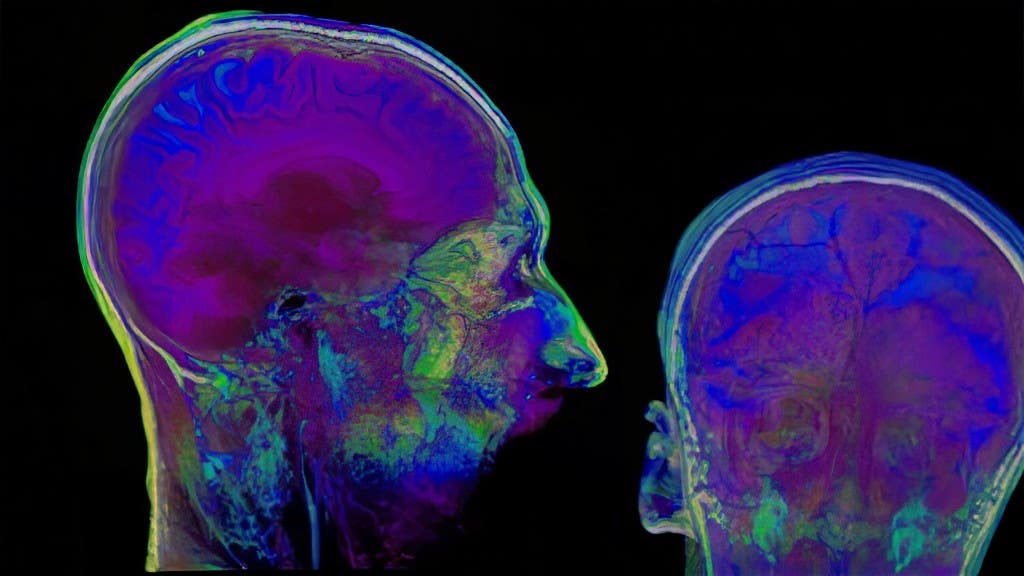Gamechanging new drug transforms how doctors treat brain tumors
UVA Health has created a new drug with the potential to significantly alter the trajectory of treating a specific kind of brain tumor.

[Sept. 30, 2023: Staff Writer, The Brighter Side of News]
The work serves as a foundational guide for physicians and scientists to understand disease development and improve treatment outcomes. (CREDIT: Creative Commons)
In a groundbreaking development, a leading cancer expert from UVA Health has brought attention to a new drug with the potential to significantly alter the trajectory of treating a specific kind of brain tumor predominantly found in younger individuals.
Dr. David Schiff, MD, who holds the prestigious title of co-director at UVA Cancer Center’s Neuro-Oncology Center, recently penned an editorial for the renowned New England Journal of Medicine. Through this platform, he elucidated the profound implications of the drug 'vorasidenib' for individuals afflicted with tumors termed as “grade 2 IDH-mutant gliomas.”
The recent INDIGO clinical trial shed light on the substantial efficacy of this drug. Vorasidenib not only decelerated tumor progression but impressively enhanced the average time from the tumor's inception, increasing it from 11.1 months to a notable 27 months.
The federal Food and Drug Administration's (FDA) nod of approval for this drug could mark a significant milestone. If sanctioned, vorasidenib will emerge as the inaugural targeted therapy dedicated explicitly to combating low-grade gliomas.
Related Stories
However, Dr. Schiff emphasizes that this isn't the sole advancement in the domain. Recent studies and breakthroughs are steadily augmenting our grasp on gliomas. He states, “It used to be that we thought of all gliomas as being on a spectrum. We now understand that those with the IDH gene mutation have a markedly different biology, outcome and, as this study illustrates, vulnerabilities that emerging therapies can adeptly exploit.”
Digging Deeper: IDH-Mutant Gliomas
A deeper understanding of IDH-Mutant Gliomas is essential to fathom the gravity of this development. Every year, around 2,500 Americans, with a median age hovering around 40, are diagnosed with this specific tumor.
Acquisition of IDH mutant results in substantial metabolic reprogramming. Neomorphic activity depletes the Krebs cycle by exhausting α-KG for D-2-HG production. (CREDIT: Nature)
The ramifications aren't limited to physical health. These tumors frequently impede cognitive functions, often leading to challenges in retaining employment and considerably affecting various facets of their daily lives. Over time, the resilience of these tumors intensifies, typically culminating in resistance to treatments and, tragically, in many instances, becoming fatal.
Traditional medical praxis for these tumors has been a passive one. Owing to limited therapeutic interventions available, the prevalent approach has been one of “watch and wait”, deferring treatment till the tumor escalates in severity. However, the advent of vorasidenib promises a paradigm shift.
David Schiff, MD, the co-director of UVA Cancer Center’s Neuro-Oncology Center, has authored an editorial in the prestigious New England Journal of Medicine describing the potential significance of the drug vorasidenib for patients with tumors known as “grade 2 IDH-mutant gliomas.” (CREDIT: UVA Health)
Dr. Schiff accentuates the potential of vorasidenib as an early intervention, suggesting that it could furnish patients with a vital alternative that may enhance their lifespan.
Revelations from the INDIGO Trial
Diving into the specifics of the INDIGO trial, it encompassed a sample size exceeding 300 patients. They were split and assigned randomly to either receive vorasidenib or a benign placebo. In an endeavor to maintain the trial's integrity, both the caregivers and the recipients were kept in the dark about the treatment specifics.
Owing to structural similarity, IDH1-mutant-derived D-2-HG serves as a competitive inhibitor for KDM4 or TET and therefore blocks the demethylation process in histone and nucleotide, respectively. (CREDIT: Nature)
The outcomes, as per Dr. Schiff's assessment, were nothing short of “striking”. The cohort that was administered vorasidenib showcased not only an elongated survival rate but also a decreased dependency on aggressive treatments like radiation and chemotherapy, especially when juxtaposed with their placebo counterparts.
Such was the magnitude of vorasidenib’s success that Dr. Schiff ardently opines that the drug could possibly “put a nail in the coffin” of the previously mentioned watch-and-wait methodology.
VisualAbstract: Vorasidenib in IDH1- or IDH2-Mutant Low-Grade Glioma (CREDIT: 2 Minute Medicine)
However, Dr. Schiff prudently adds, “There are still many unanswered questions about how we can best utilize this new medication if and when it secures FDA approval. Nonetheless, given the harsh nature of existing standard therapies for these tumors – radiation and chemotherapy – which are fraught with both short and long-term side effects, the introduction of a beneficial and remarkably well-tolerated treatment option would indeed be a monumental relief.”
Both the illuminating outcomes of the INDIGO trial and Dr. Schiff’s insightful editorial have found their rightful place in the pages of the New England Journal of Medicine. As the medical fraternity and patients await the FDA’s verdict on vorasidenib, there’s palpable optimism that this drug could be the dawn of a new era in the treatment of grade 2 IDH-mutant gliomas.
Note: Materials provided above by The Brighter Side of News. Content may be edited for style and length.
Like these kind of feel good stories? Get the Brighter Side of News' newsletter.



